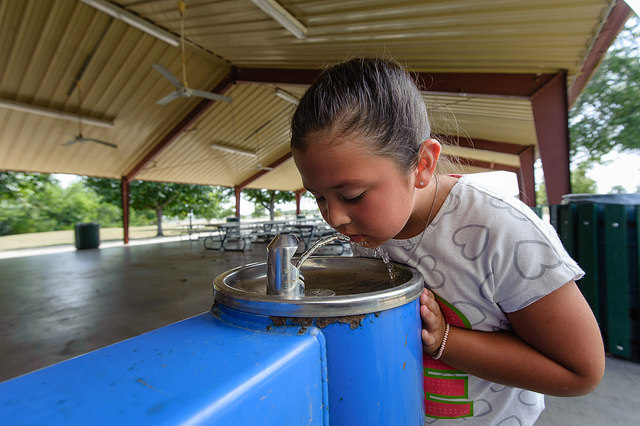Q&A: Bringing public health to the forefront

In this day and age it’s imperative that we recognize the contributions of public health workers and highlight issues important to improving the public’s health. We asked Jay Maddock, Ph.D., the new dean of the Texas A&M Health Science Center School of Public Health, to offer some insight on the most pressing public health issues facing our state and nation.

Q: What is public health?
A: A lot of people don’t understand the difference between public health and health care. Public health is everything that keeps us healthy outside the clinical setting. When clean water comes out of the tap, that is public health. When smoking is not allowed in workplaces, that is public health. When you go to a restaurant and don’t get sick from contaminated food, that is public health. We look at what conditions cause disease – both infectious diseases like influenza and chronic diseases like heart disease, educate the public on these conditions, and provide policymakers with the best evidence to make wise choices in developing policy.
Often, the only times people think about public health is when there is a problem, such as when the Ebola virus came to Texas. More often than not, when we do our jobs, no one even knows we are here.
Q: What are the most pressing public health issues right now – both in the United States and in Texas?
A: The most pressing public health issues in the United States are also the most pressing issues in Texas. First, we pay too much for health care and garner poor results. We need to reorient the system from treatment to prevention. We spend the most money in health care on the last month of a person’s life; often enacting heroic efforts to prolong life that ultimately result in a poor quality of life during those last 30 days. We need to better accept end-of-life issues and focus on quality of life rather than quantity.
A major issue that we’re seeing throughout the life cycle is obesity, which in combination with diabetes, is advancing out of control in the United States and Texas. South Texas especially is disproportionally affected by both of these diseases, which are preventable in most cases. We need comprehensive approaches to reduce these epidemics. Tackling this multi-faceted problem involves looking at food systems and how we build our communities as well as the educational system and individual health behaviors.
Health issues also are carrying over to other areas of our country. The U.S. military is having trouble finding recruits who meet its fitness standards. This is a national security issue. Fit kids do better in school than non-fit kids. If Texas is less fit that other states and nations, we are putting ourselves at an economic disadvantage. Fitness is the foundation of our success as a state.
Q: There are some issues related to public health that people wouldn’t necessarily think of as public health issues. Can you talk about some of these?
A: Climate change is one example of this. Every year in cities such as Houston, McAllen and San Antonio we are seeing more deaths due to heat. Climate change has also impacted the availability of water, which is important for food production.
Another issue that people don’t associate with public health is war and conflict. But if you want to see infectious diseases, go to a refugee camp. Preventing war is a public health issue.
Q: How is the Texas A&M School of Public Health addressing some of these major public health issues?
A: We have several projects related to healthy aging and end-of-life issues. We also are actively working in South Texas to combat diabetes and obesity, as well as asthma. In College Station and across the country, we are examining the effects of standing desks on reducing obesity and improving student performance. Our work also includes increasing colonoscopy screening, studying the effects of laws banning texting while driving and serving as the statewide evaluator of the Texas Medicare waiver program. The most exciting thing about working in the School of Public Health is that our research has real-world positive impacts on the health of Texans.
Q: Is there a need for more public health professionals?
Yes. Public health is one of the most rapidly growing fields in the country and we have a critical shortage of public health professionals. Traditionally, public health has been only offered at the graduate level. We really need to start training people earlier. This year the Texas A&M School of Public Health started an undergraduate program that is turning out to be extremely popular. I am interested in eventually partnering with all the institutions in the Texas A&M System to develop undergraduate public health programs across the state. I would like to see Texas A&M serve as the nation’s leader in public health training.
Even if college undergraduates aren’t majoring in public health, I would like to see them all take a public health course the same way that most take a psychology course. It would really make a difference in our communities and our state if everyone has exposure to this field because public health impacts each and every person on this planet, whether they realize it or not.
Media contact: media@tamu.edu


